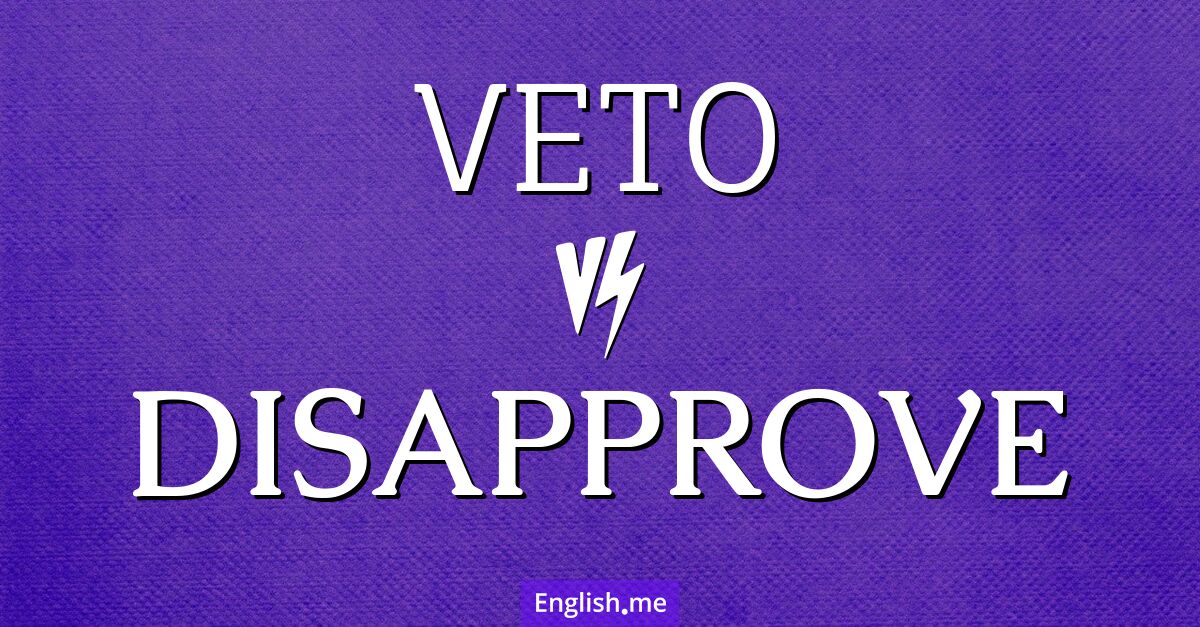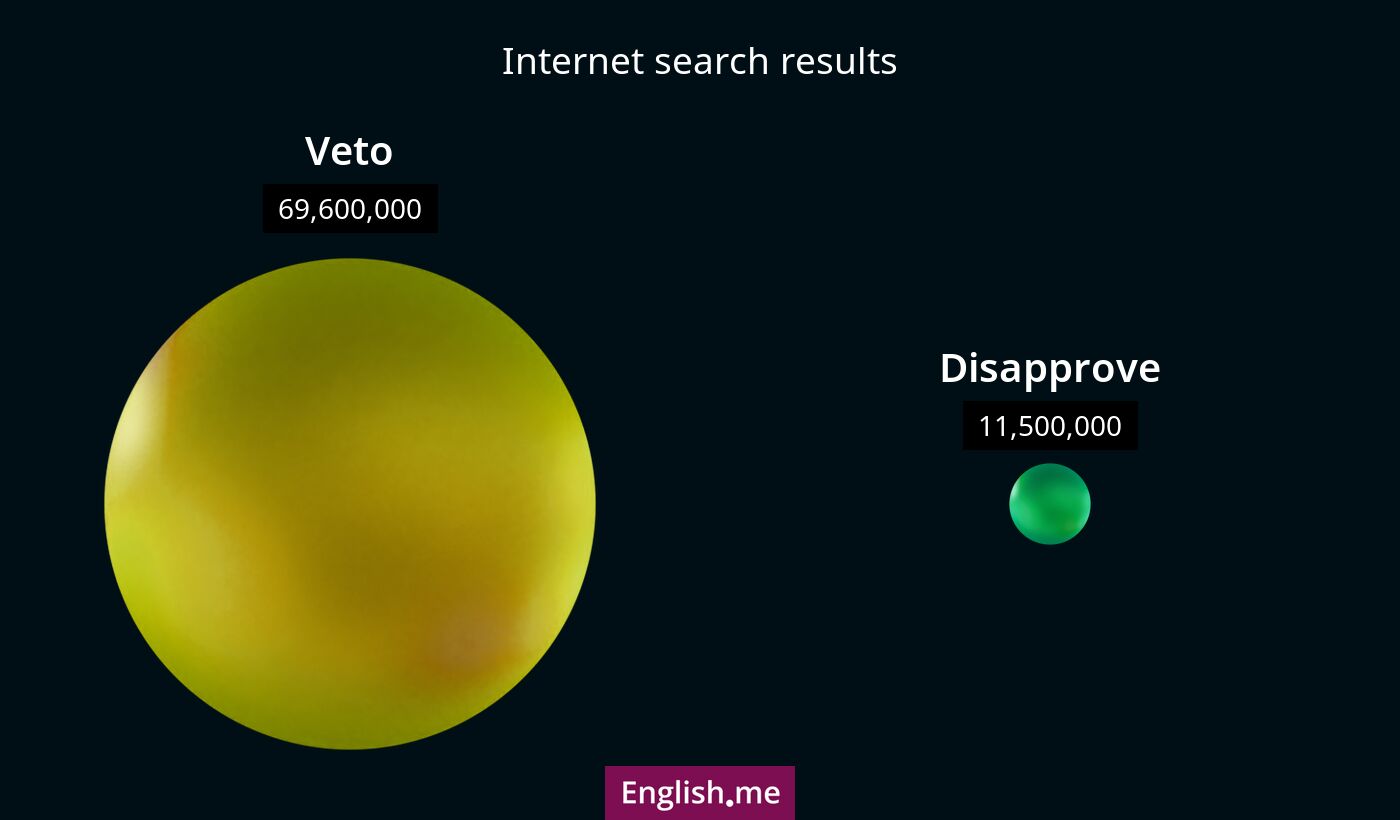"Veto" vs. "disapprove": a closer look at their distinct powers
Reviewed and edited by  Anwar Kareem 02/11/2024, 12:20
Anwar Kareem 02/11/2024, 12:20
English.me team member

 What is similar?
What is similar?
Both "veto" and "disapprove" imply rejection or non-acceptance of a proposal or decision.
 What is different?
What is different?
"Veto" specifically refers to the power to unilaterally stop an official action, particularly in a legislative context, while "disapprove" generally means expressing an unfavorable opinion or refusal, without the power to unilaterally stop the action.
 Which one is more common?
Which one is more common?

 Examples of usage
Examples of usage
Veto- The president decided to veto the new bill passed by Congress.
- Using his veto power, the mayor stopped the proposed city ordinance.
- The governor has threatened to veto any legislation that increases taxes.
- I disapprove of the way they handled the situation.
- She disapproves of her daughter's choice of career.
- Many citizens disapprove of the new policy.

 English
English español
español française
française italiano
italiano deutsche
deutsche 日本語
日本語 polski
polski česky
česky svenska
svenska Türkçe
Türkçe Nederlands
Nederlands